Most of the content looks familiar from last quarter, but somewhere in those pages are the updates that actually matter. The question is: where?
If you're spending hours hunting through repeated content to find what's genuinely new, you're not alone. Research shows the average director spends 4-6 hours preparing for each board meeting, with much of that time wasted on redundant information scanning.
Why Finding Changes in Board Packs Is So Difficult
Board packs have grown dramatically in size and complexity. What used to be 50-page documents are now often 150-300 pages, packed with:
- Standard templates that look identical quarter after quarter
- Financial statements with slight numerical changes
- Committee reports with similar formatting but new content
- Legal updates buried in familiar-looking sections
- Strategic updates that may be entirely new or just refreshed
Our brains simply aren't designed to efficiently spot these changes across hundreds of pages, especially when you're juggling multiple boards with different formatting styles and reporting cadences.
The Traditional Approach (And Why It Falls Short)
Most directors resort to one of these time-consuming methods:
- Linear Reading: Read the pack, front to back, often taking 4+ hours. Frequent interruptions plus the realistic limitations of memory recall can often lead to missing subtle but important changes buried in routine sections.
- Table of Contents Scanning: Looking for obviously new sections. This catches major additions but misses updates within existing sections.
- Keyword Searching: Using PDF search for terms like "new," "change," or "update." This generates false positives and misses changes described with different language.
- Previous Pack Comparison: Opening last quarter's pack alongside this quarter's and manually comparing. This works but is incredibly tedious.
How AI Can Transform Change Detection
Artificial intelligence excels at exactly this type of pattern recognition and comparison task. Modern AI can perform sophisticated document comparison that goes beyond simple text matching and can even assess the importance of changes based on size, location, keywords, and financial materiality.
So does that mean I can upload my pack into the latest AI tool like chatGPT or Claude? Here's why it's worth reading on before leaping in.
⚠️ Critical Security Considerations
Using public AI platforms like ChatGPT, Claude, or Gemini with board documents creates significant risks, including data retention for AI training, third-party access, potential data breaches, and regulatory violations. Your fiduciary duty to protect confidential information comes first.
Safer Approaches to AI-Powered Change Detection
Before using any AI tool, directors must assess their risk tolerance and consider safer alternatives that prioritize security and confidentiality.
- On-Premise AI Solutions: Using private AI instances deployed within your organization's secure infrastructure.
- Professional Comparison Software: Leveraging enterprise tools with security certifications designed for sensitive document review.
- Purpose-Built Governance Platforms: Opting for platforms like Vizory, which are specifically designed for board directors with enterprise-grade security, data residency controls, and compliance with governance regulations.
The Strategic Impact
When you stop wasting time hunting for changes and start focusing on their implications, your board contribution transforms. You arrive at meetings confident you haven't missed critical updates, prepared with thoughtful questions, and ready to engage in strategic discussions rather than seeking clarification.
AI can dramatically reduce preparation time, but public AI platforms and confidential board materials don't mix. Save time, but don't compromise security.
Key Takeaways
- Manually finding changes in large board packs is inefficient and prone to error.
- AI excels at document comparison but using public AI tools (like ChatGPT) with board packs is a major security risk.
- Safer alternatives include on-premise solutions or purpose-built, secure governance platforms designed for directors.
- Reducing time spent on finding changes allows directors to focus on strategic analysis and asking better questions.
